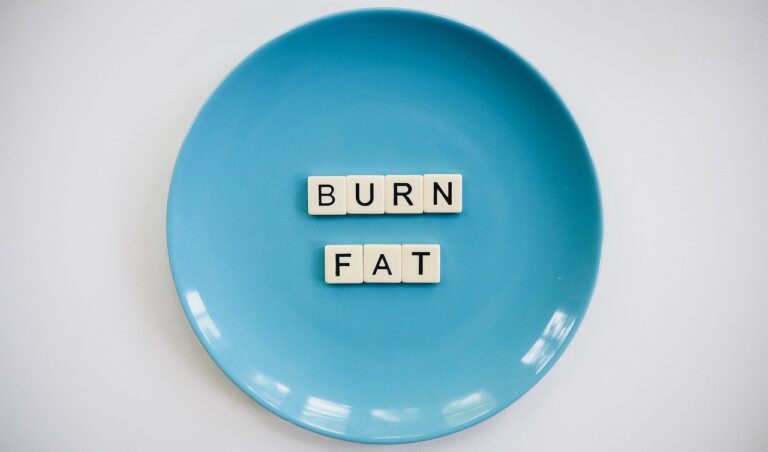Ramadan, a holy month of self-observation and spiritual growth, presents a unique opportunity to nourish your body and soul. While refusing from food and drink during daylight hours can be challenging, it can also be a catalyst for positive dietary changes. This guide explores a Ramadan diet plan specifically change to Pakistani cuisine, offering delicious healthy iftar recipes pakistai and guidance for a fulfilling Ramadan experience. We’ll expose the myths surrounding crash diets and gym routines often associated with Ramadan, and show you how to prioritize well-being throughout the holy month.
Why Prioritize a Healthy Ramadan Diet (Especially in Pakistan):
Ramadan is a time for spiritual reflection, connection with loved ones, and of course, incredible Pakistani food! We all look forward to those special iftar gatherings, sharing plates overflowing with fragrant curries and fluffy rotis. But sometimes, those rich and hearty meals can leave us feeling sluggish or even lead to weight gain.
Here’s the good news: you can absolutely enjoy the spirit of Ramadan and those amazing Pakistani dishes we all love, all while taking care of your health and maybe even shedding a few pounds! Here’s why prioritizing a healthy Ramadan diet plan is a win-win for Pakistanis:
Happy Gut, Happy You: Our digestive systems take a break during Ramadan. Imagine them like your favorite Pakistani truck – they need a little TLC after a long journey! Healthy iftar recipes that focus on lighter, easily digestible Pakistani staples like soups and dals give your gut a chance to ease back into action gently. Think of it like a smooth ride on a well-maintained truck!
Energy to Spare for Taraweeh and Beyond: Nobody wants to be dragging during Taraweeh prayers or those late-night family gatherings. By opting for slow-releasing carbohydrates like brown rice and complex dals in your healthy iftar recepies pakistani, you’ll have sustained energy throughout the evening. No more sugar crashes to disrupt your Ramadan experience!
Weight Management Made Easy: Ramadan can be a great opportunity to develop healthy habits that stick with you long after Eid. By making conscious food choices during suhoor and iftar, you can cultivate healthy eating practices that support weight loss and overall well-being. Think of it like finally getting around to fixing that minor dent in your car – a small change with a big impact!
Beyond the Basics: Pakistani Recipes for a Healthy Iftar
Let’s face it, a bland iftar just isn’t the same! Here’s the best part: there are tons of delicious and healthy ways to enjoy Pakistani cuisine during Ramadan.
- Start Light, Stay Hydrated: Kick off your iftar with a glass of water or refreshing lassi (a yogurt drink). Then, move on to light soups like chicken shorba or lentil soup (daal). These dishes are hydrating and gentle on your stomach.
- Protein Power: Lean protein is your friend during Ramadan! Grilled chicken, fish, or a small portion of lean beef (qeema) keeps you feeling fuller for longer and helps build muscle, which can actually boost your metabolism. Think of it like adding a powerful engine to your car – it helps you burn more fuel!
- Veggie Extravaganza: Pakistan boasts some incredible vegetable dishes! Embrace them! Include a side of stir-fried vegetables (sabzi), a refreshing salad with a light raita (yogurt dressing), or roasted vegetables (tandoori bhuna). These dishes are packed with vitamins, fiber, and all sorts of good stuff to keep your body happy.
- Carbs, But Wisely: Brown rice, roti, or quinoa are great choices for complex carbohydrates. These provide slow-releasing energy and help manage blood sugar levels. Just remember, portion control is key! Think of it like filling your car’s tank strategically – you don’t want to overflow!
- Healthy Fats in Moderation: A small portion of healthy fats like avocado slices or a sprinkle of chopped nuts can add a touch of richness and help you feel satisfied. Just remember, moderation is key!
- Ditch the Sugar Rush: We all love Pakistani desserts, but during Ramadan, it’s best to limit sugary drinks like sherbet or fruit juices. Opt for water, lassi, or unsweetened tea instead. These will keep you hydrated without causing blood sugar spikes and crashes.
Healthy Iftar Recipes Pakistani Style:
There are endless possibilities for creating delicious and healthy iftar recipes pakistani with a Pakistani twist! Here are a few ideas:
- Chicken Keema with Bhindi (Okra): This classic dish provides lean protein from the chicken and fiber from the okra, all wrapped up in a flavorful tomato-based gravy. You can even use brown rice instead of white for an extra boost of nutrients.
- Daal Makhani with Tandoori Roti: This creamy lentil dish is a Pakistani staple, packed with protein and fiber. Pair it with a small, whole-wheat tandoori roti for a satisfying and balanced meal.
- Fish Tikka Masala with a Light Yogurt Sauce: Grilled fish is a fantastic source of lean protein, and the yogurt sauce adds a touch of creaminess without being overly heavy. Pair it with roasted vegetables for a complete meal.
- Chicken Shorba (Clear Chicken Soup) : This light and comforting soup is a perfect way to start your iftar and gently rehydrate your body after a long day of fasting.
- Chana Chaat (Chickpea Salad): This refreshing and flavorful salad is a great side dish or light meal for iftar. Packed with protein and fiber from chickpeas, it’s both delicious and healthy.
Prioritize Faith; A Gym diet plan for Ramadan:
Ramadan is a sacred time for spiritual growth, reflection, and strengthening your connection with Allah (SWT). While maintaining a fitness routine is admirable, prioritizing a gym diet plan for Ramadan can actually hinder your well-being. Here’s why a well-balanced Ramadan diet plan is key, allowing you to focus on your faith without the strain of a gym diet plan for Ramadan.
Why Ditch the Gym Diet Plan During Ramadan (Especially for Pakistanis):
Following an intense gym diet plan for ramadan often leads to two problems:
- Unsustainable Practices: Crash diets and extreme gym diet plans are unsustainable during a fasting period. They can leave you depleted and potentially harm your health.
- Energy for Spiritual Focus: Focus on a Ramadan diet that prioritizes slow-releasing energy sources like complex carbohydrates in brown rice or dals. This will keep you vibrant during Taraweeh prayers, gatherings, and late-night activities, allowing you to fully engage in the spiritual aspects of Ramadan.
Building Healthy Habits with a Pakistani Ramadan Diet:
Instead of relying on a demanding gym diet plan for ramadan, prioritize these sustainable practices:
- Embrace Whole Foods: Pakistan boasts an abundance of healthy staples. Choose unprocessed options like fruits, vegetables, lentils, lean proteins like chicken or fish, and whole grains like brown rice or roti.
- Mindful Eating: Pay close attention to your hunger cues during suhoor and iftar. Savor each bite and stop when comfortably full, not stuffed. Overeating can leave you sluggish and hinder your spiritual focus.
Crafting a Pakistani Iftar for Well-being:
- Dates: Dates are a traditional way to break your fast gently, offering a natural source of sugar and essential nutrients.
- Soups and Dals: Start your iftar with light, clear soups or protein-rich dals like lentil soup (daal) or chana dal (chickpea curry). These dishes are hydrating, easy to digest, and keep you feeling full.
- Lean Protein: Include grilled chicken, fish, or a small portion of lean beef (qeema) in your iftar. Lean protein builds muscle, boosts metabolism, and provides sustained energy for both spiritual activities and light exercise.
- Veggie Galore: Embrace the vibrant vegetable dishes Pakistan is known for! Include a side of stir-fried vegetables (sabzi), a refreshing salad with a light yogurt dressing (raita), or roasted vegetables (tandoori bhuna).
- Complex Carbs in Moderation: Brown rice, roti, or quinoa provide slow-releasing energy and help manage blood sugar levels. Opt for smaller portions compared to traditional iftars to avoid feeling overly full.
- Healthy Fats: Include a small portion of healthy fats like avocado slices or a sprinkle of chopped nuts for satiety and improved heart health.
- Limit Sugary Drinks: Opt for water, lassi, or unsweetened tea instead of sugary drinks like sherbet or fruit juices to avoid blood sugar spikes and crashes.
Gentle Exercise for Overall Well-being:
Light exercise during non-fasting hours can actually enhance your well-being during Ramadan:
Embrace the Spirit, Not the Strain:
- Improved Digestion: Gentle walks or light yoga can help your digestive system function smoothly during this time of change.
- Mood Boost: Exercise releases endorphins, which can improve your mood and energy levels, allowing you to better connect with your faith.
- Stress Relief: Light physical activity can be a great way to manage stress, a common experience during Ramadan.
A healthy Ramadan is not about pushing yourself with a demanding gym diet plan for ramadan, focus on a balanced Ramadan diet plan that prioritizes Pakistani staples and nourishes your body. Listen to your body’s needs, prioritize rest, and embrace gentle exercise for overall well-being. Remember, a healthy Ramadan is about strengthening your connection with Allah (SWT) and emerging from the holy month feeling renewed and empowered.
Conclusion:
Celebrate a radiant Ramadan this year! Embrace delicious Pakistani cuisine while prioritizing well-being. Ditch the crash diets and gym struggles. Focus on whole foods, mindful eating, and gentle exercise for sustained energy throughout the holy month.
DietFit empowers you to navigate Ramadan with ease. Our personalized meal plans featuring healthy Pakistani delights and expert guidance ensure you make informed choices at suhoor and iftar. Visit our website https://dietfit.pk/ or contact us at: +92 336 1855749 to embark on a Ramadan journey that nourishes both your body and soul. DietFit: Making You & Your Diet Fit.



